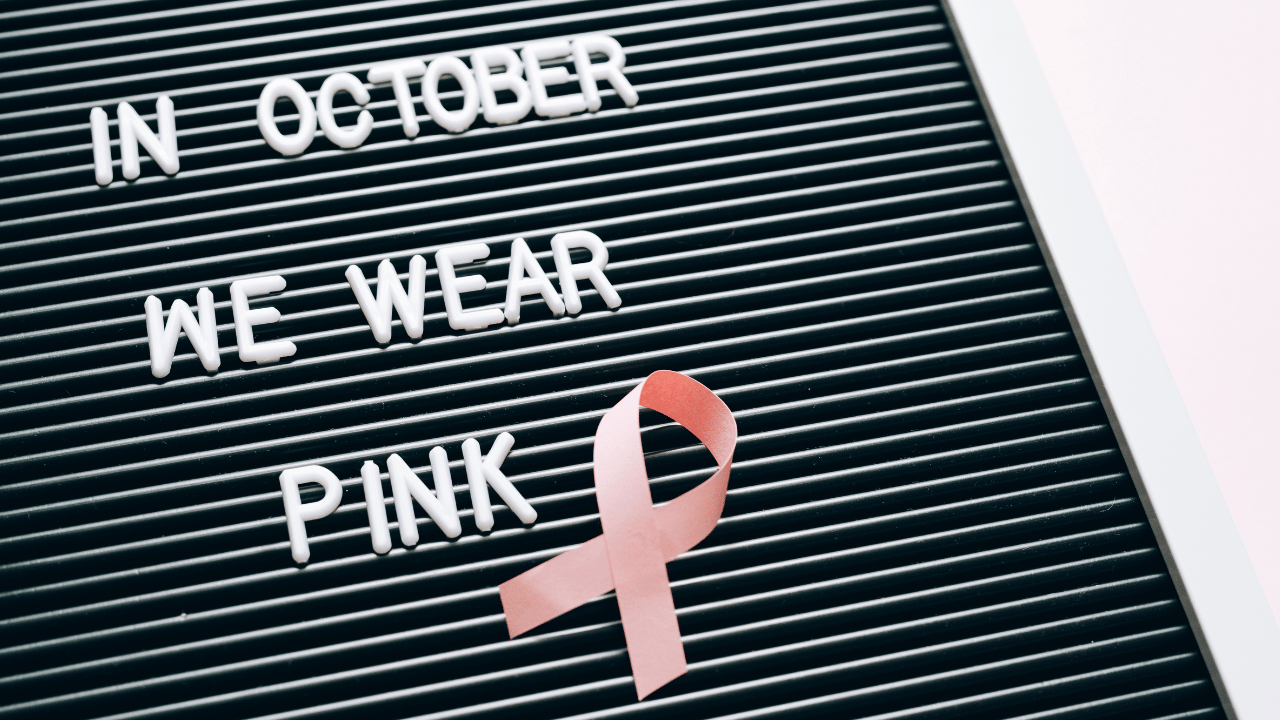October is Breast Cancer Awareness Month
Oct 15, 2025
I would like to take a moment to honor all the amazing women, not only in October for breast cancer
awareness, but throughout the year, for being you. For being selfless, giving, loving, and caring to all
around to; for being a mother, grandmother, step-mother, sister, daughter, sister-in-law, daughter-in-law
law, or a friend to others in your life.
YOU are the most important person in your life, and your health is your most valuable asset. So to
continue doing all the incredible things you do, you MUST prioritize your health. Start this month-
October- to refresh your health and wellness goals and to shift your focus on YOU and your health.
If you or someone you know has been diagnosed with breast cancer, I hope this article helps you make
some positive changes in your life to be the healthiest version of you.
Improving outcomes for breast cancer involves a combination of early detection, effective treatment,
and maintaining a healthy lifestyle. While there are no guarantees, here are five strategies that may help
improve outcomes for breast cancer:
Prevention: Breast cancer prevention involves reducing your risk factors and adopting a healthy lifestyle. While it's not always possible to completely prevent breast cancer, but there are steps you can take to lower your risk:
-Maintain a Healthy Weight: Being overweight or the second leading cause of cancer, including breast
cancer, particularly after menopause. Maintain a healthy weight through a balanced diet and regular
physical activity.
-Eat a Balanced Diet: Consume a diet rich in fruits, vegetables, and lean protein. Limit the consumption
of processed foods, sugary beverages, and high-fat foods.
-AVOID Alcohol Consumption: Alcohol intake is linked to an increased risk of breast cancer. There is NO
safe amount of drinking alcohol. If you choose to drink alcohol, do so in very small amounts or consider
eliminating it altogether.
-Regular Physical Activity: Engage in regular physical activity. Aim for at least 45-60 minutes of
moderate-intensity exercise or 35-40 minutes of vigorous-intensity exercise per day, 4-6 times a week.
Physical activity can help maintain a healthy weight and reduce breast cancer risk.
-Breastfeed, If Possible: If you have children, consider breastfeeding. Breastfeeding may lower the risk of
breast cancer, especially if done for an extended duration.
-Avoid Hormone Replacement Therapy (HRT): Discuss the risks and benefits of hormone replacement
therapy with your healthcare provider, particularly if you're considering it for menopausal symptoms.
HRT can increase breast cancer risk in some women.
-Know Your Family History: Understand your family's history of breast cancer and other cancers. If you
have a family history of breast cancer or certain genetic mutations (e.g., BRCA1 or BRCA2), talk to a
genetic counselor about your risk and potential preventive measures.
-Breast Self-Exams and Screening: Perform regular breast self-exams to become familiar with your
breast tissue. Additionally, follow recommended screening guidelines for mammograms and clinical
breast exams. Early detection through screening can improve outcomes.
Limit Exposure to Radiation and Environmental Toxins: Minimize exposure to ionizing radiation (e.g.,
frequent X-rays) and environmental toxins when possible. While the risk is generally low, reducing
exposure is a precautionary measure.
-Stress Management: Chronic stress may contribute to a range of health issues, including breast cancer.
Practice stress-reduction techniques such as meditation, yoga, deep breathing exercises, or seeking
support from a mental health professional.
It's essential to remember that not all breast cancers can be prevented, and some risk factors, like
genetics and age, are beyond your control. However, by adopting a healthy lifestyle and being proactive
about early detection and screening, you can significantly reduce your risk of developing breast cancer
and improve your overall health. Consult with your healthcare provider for personalized advice and to
discuss any concerns you may have about breast cancer prevention.
If you have been diagnosed with breast cancer, you have options, and you certainly have control over
your body, how you fuel your body, and how to take care of your overall health.
Now, more than ever, you must prioritize your health.
During the entire month of October, I am offering 25% discount to ALL women, on ALL nutrition
programs to anyone interested in cancer prevention, cancer care, and or cancer control programs.
Use promo code: BREASTCANCER25
Do you want to learn more about this and other topics? Reach out and let’s chat.
Contact Us
Have questions or need support on your wellness journey? We’re here to help. Reach out with any inquiries about programs, consultations, or resources, and our team will get back to you shortly.
We hate SPAM. We will never sell your information, for any reason.

